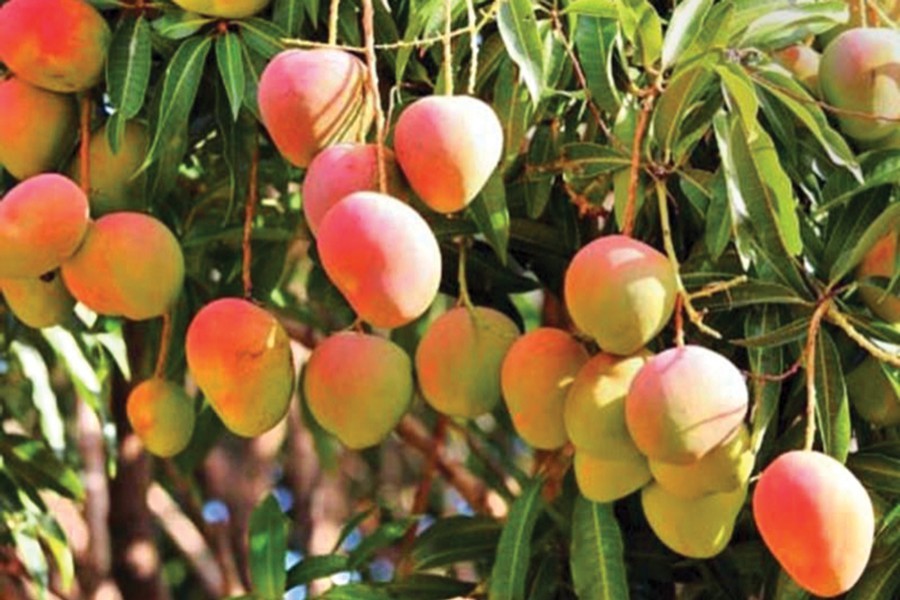Two new varieties of mango – BARI Falsa-1 and BARI Mango-14 – in Rajshahi have recently been registered with the National Seed Board.
Of them, BARI Falsa-1 is indigenous while BARI Mango-14 is from Saudi Arabia, officials concerned say.
Rajshahi Horticulture Research Centre had applied for the registration after prolonged research on the two varieties of mango, they add.
BARI Mango-14
Former Chief Scientific Officer Golam Murtuza of Chapainawabganj Horticulture Research Centre had gone to Saudi Arabia and worked there as a researcher on mango orchards, said Dr Alim Uddin, Principal Scientific Officer of Rajshahi Horticulture Research Centre.
As he returned home in 2010, Mr Murtuza brought some branches of 'Tomyatkins' variety of mango from there and handed them over to Rajshahi Horticulture Research Centre, he said.
Those branches were later grafted but all but one perished. From the grafted branch that could be kept alive, four mother saplings were developed and they are now grown and have been bearing fruits for the last 10 years, Mr Alim said.
At the same time, they have conducted research on the Saudi-origin mango variety, he noted.
What the research says about BARI Mango-14
This variety of mango, from Saudi Arabia, takes a maroon colour when it ripens – at the end of July. The average weight of the mango is 550 grams with its 75.35 per cent consumable.
The average sweetness of the Saudi-origin variety of mango is 22.83 per cent while it is 10.83 centimetres in length and 8.49 centimetres in breadth.
BARI Falsa-1
Rajshahi Horticulture Research Centre has collected data and information of an indigenous 20-year-old Falsa, the official name of which is now BARI Fasla-1, tree on its premises for the last 10 years.
What the research says about BARI Falsa-1
Full of vitamin and minerals, this fruit tasting sweet and sour is very popular among children.
This fruit ripens between May and June, turning black or violet. It’s 5 to 12 millimetres in radius.
On December 31, the director general (seed) of the Ministry of Agriculture and the secretary of National Seed Board approved the registration of the two new varieties of mango.
Mr Alim, the principal officer of Rajshahi Horticulture Research Centre, said now that they have got the registration, they would start producing more saplings of the two new varieties of mango and try to spread them around the country soon.


